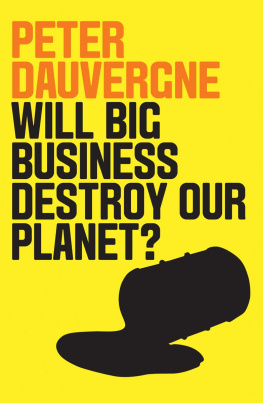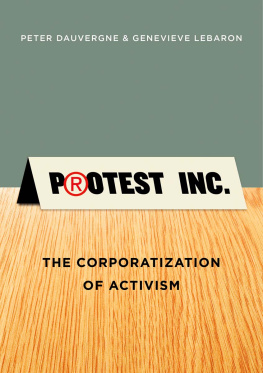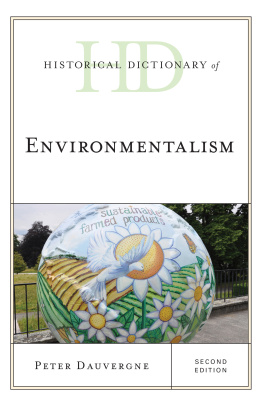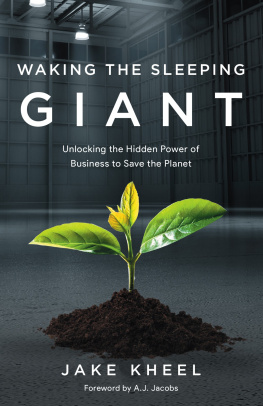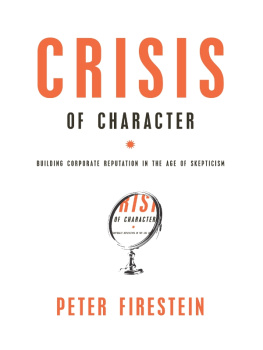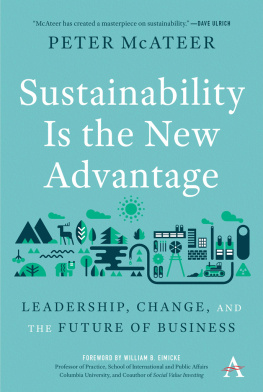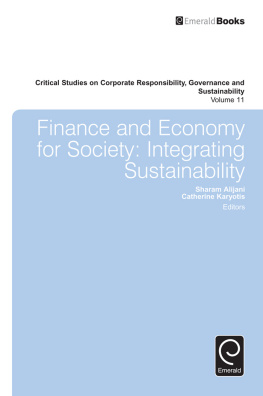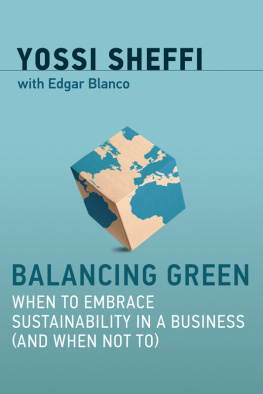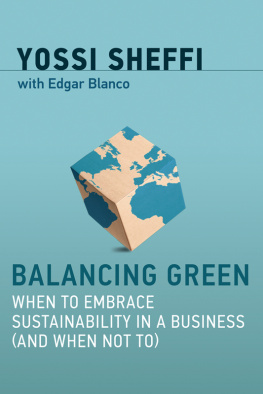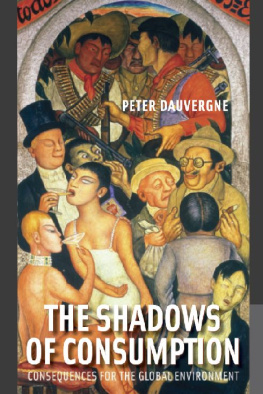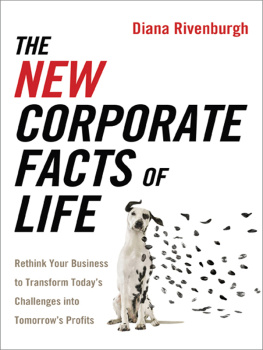Contents
Guide
Pages

Will Big Business Destroy Our Planet?
Peter Dauvergne
polity
Copyright Peter Dauvergne 2018
The right of Peter Dauvergne to be identified as Author of this Work has been asserted in accordance with the UK Copyright, Designs and Patents Act 1988.
First published in 2018 by Polity Press
Polity Press
65 Bridge Street
Cambridge CB2 1UR, UK
Polity Press
101 Station Landing
Suite 300
Medford, MA 02155, USA
All rights reserved. Except for the quotation of short passages for the purpose of criticism and review, no part of this publication may be reproduced, stored in a retrieval system or transmitted, in any form or by any means, electronic, mechanical, photocopying, recording or otherwise, without the prior permission of the publisher.
ISBN-13: 978-1-5095-2404-4
A catalogue record for this book is available from the British Library.
Library of Congress Cataloging-in-Publication Data
Names: Dauvergne, Peter, author.
Title: Will big business destroy our planet? / Peter Dauvergne.
Description: Cambridge, UK ; Medford, MA : Polity Press, [2018] | Series: Environmental futures | Includes bibliographical references and index.
Identifiers: LCCN 2017042180 (print) | LCCN 2017050832 (ebook) | ISBN 9781509524044 (Epub) | ISBN 9781509524006 (hardback) | ISBN 9781509524013 (pbk.)
Subjects: LCSH: Big business--Environmental aspects. | Sustainable development. | Social responsibility of business.
Classification: LCC HC79.E5 (ebook) | LCC HC79.E5 D34634 2018 (print) | DDC 363.7/011--dc23
LC record available at https://lccn.loc.gov/2017042180
The publisher has used its best endeavours to ensure that the URLs for external websites referred to in this book are correct and active at the time of going to press. However, the publisher has no responsibility for the websites and can make no guarantee that a site will remain live or that the content is or will remain appropriate.
Every effort has been made to trace all copyright holders, but if any have been inadvertently overlooked the publisher will be pleased to include any necessary credits in any subsequent reprint or edition.
For further information on Polity, visit our website: politybooks.com
Acknowledgments
I am grateful to Louise Knight at Polity Press for inspiring this book, Nekane Tanaka Galdos at Polity Press for editorial assistance, and to Michaela Pedersen-Macnab for her adept research support. I am also thankful for the perceptive feedback from Politys anonymous reviewers for this book. Jane Lister, my coauthor for the books Timber (2011) and Eco-Business (2013), and Genevieve LeBaron, my coauthor for the book Protest Inc. (2014), deserve special mention here, as their insights into the environmental and social consequences of big business have greatly influenced my thinking over the past decade.
A grant from the Social Sciences and Humanities Research Council of Canada supported the research for this book (Corporations and the Politics of Environmental Activism in the Global South, reference number 43520140115).
1
Total Destruction?
The earth is in crisis. And this crisis is escalating. The planet is growing warmer and warmer, bringing increasingly violent storms, prolonged droughts, rising seas, scorching forest fires, and the extinction of species. And this is far from our only worry. Coral reefs are dying. Fish stocks are collapsing. Industrial pollutants are poisoning the Arctic. And toxic chemicals are leaching into aquifers.
Signs of an escalating global environmental crisis are everywhere. Swirling eddies of plastic are growing ever-larger in the Pacific, Atlantic, and Indian oceans, with the largest, known as the Great Pacific Garbage Patch, bigger than the state of Texas. Already, more than half of the tropical forests, which contain roughly half of all land species, are gone. Sixty percent of primate species, our biological cousins, are now heading toward extinction by the middle of this century. Yet, still, every year we continue to destroy as much as ten million hectares of tropical forest an amount equal to one soccer field every two to three seconds.
Is big business to blame? Just the opposite, the chief executive officers of the worlds leading transnational corporations (TNCs) are telling us: big business is saving, not destroying, our planet. As Paul Polman, CEO of the Anglo-Dutch consumer goods company Unilever, remarked: We are entering a very interesting period of history where the responsible business world is running ahead of the politicians.
Pledging sustainability
The ambition of big business to protect our planet would seem boundless. To stop climate change, Nike says it is pursuing sustainable innovation a powerful strategy that drives us to dream bigger and get better. Monsanto says it is a leader in innovative and sustainable agriculture, with a simple mission: to provide tools for farmers to help nourish the growing global population and help preserve the Earth for people, plants, wildlife and communities. Until recently even Volkswagen was saying it was aspiring by 2018 to be the worlds most successful and fascinating automobile manufacturer and the leading light when it comes to sustainability.
TNCs such as Coca-Cola and Pepsi are now competing to proclaim their enthusiasm. Sustainability is the pivot for where we want to go how we want to structure our processes, our thinking, our investments, declared Coca-Colas CEO in 2010. Companies like PepsiCo have a tremendous opportunity as well as a responsibility to not only make a profit, but to do so in a way that makes a difference in the world, said Pepsis CEO in 2016.
Only big business, the CEOs are telling anyone who will listen, has the power and the determination to make the hard decisions necessary for sustainable development, or what they are increasingly describing as sustainability. Pursuing sustainability is good business in a world of growing scarcity, goes the refrain. Environmental sustainability, asserts Walmart, has become an essential ingredient to doing business responsibly and successfully.
The past decade has seen sweeping promises by the worlds biggest corporations. Zero deforestation. Carbon neutrality. Zero water footprints. One hundred percent renewable energy. Zero waste to landfill. Fully responsible sourcing. One hundred percent conflict-free ingredients. Can Walmart and Volkswagen and Nike truly help save us from full-blown planetary instability by the end of this century? What about ExxonMobil and Toyota and Apple? Or Google and General Electric and Costco? Or McDonalds and Coca-Cola and Mattel? Or Starbucks and Monsanto and Nestl?
Most governments and many NGOs are clearly hoping so, nodding along as these companies declare themselves to be sustainability leaders, and loudly applauding industry-friendly solutions, such as certification, offsetting, and voluntary corporate social responsibility (CSR). Leading scholars are also seeing promising signs of change in the business world. Rather than looking to government for solutions, argues Professor Andrew Hoffman of the University of Michigan, many businesses are taking responsibility for climate change seriously and changing the system on their own.
Can these companies, as the world pledged in the 2015 Paris Agreement on Climate Change, really help keep global warming from exceeding 1.5C? Or help end overfishing, deforestation, and biodiversity loss? Or help stop the depletion of fresh water? Or help curb plastic and chemical pollution?

